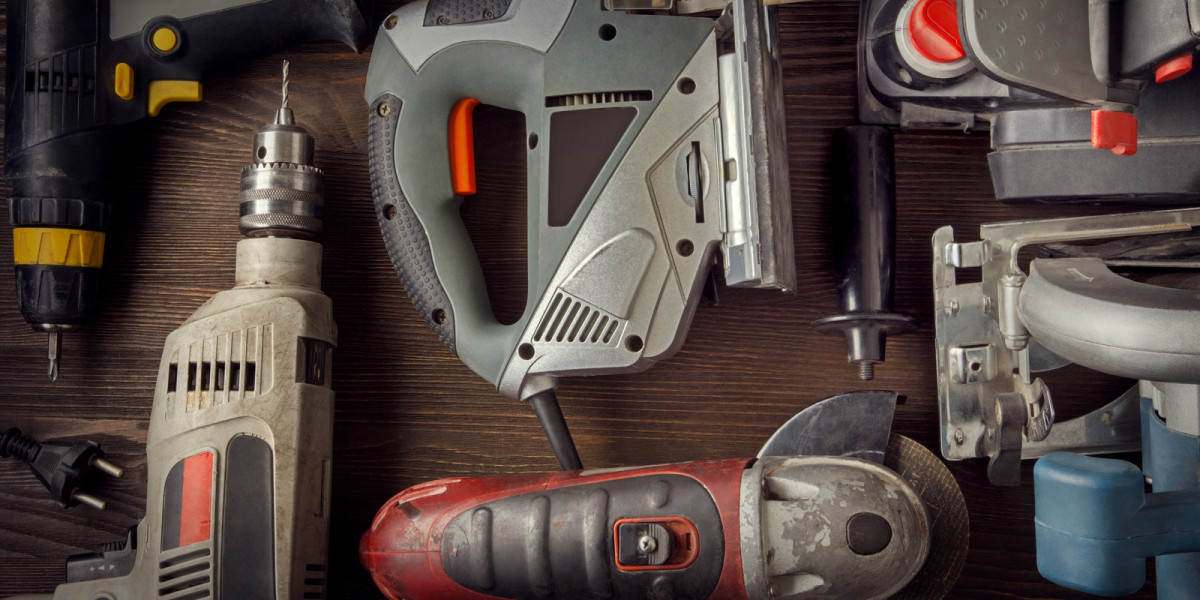The power tools industry has witnessed a significant transformation, driven by cutting-edge innovations that enhance efficiency, durability, and safety. With rapid advancements in battery technology, artificial intelligence (AI), and the Internet of Things (IoT), power tools are becoming smarter, more powerful, and more user-friendly. Whether for industrial use, commercial projects, or DIY enthusiasts, these innovations are redefining the way we work.
1. The Cordless Revolution: Lithium-Ion Batteries and Beyond
One of the most remarkable innovations in the power tools market is the shift toward cordless tools powered by lithium-ion batteries. These batteries offer greater energy efficiency, longer runtime, and faster charging capabilities compared to traditional nickel-cadmium (NiCd) batteries. Additionally, manufacturers are exploring solid-state batteries and graphene-based alternatives, which promise even higher power density and longevity. Cordless tools provide mobility and convenience, eliminating the need for constant access to power outlets, making them ideal for both professionals and DIY users.
2. Smart Power Tools: IoT and AI Integration
The integration of smart technology in power tools is revolutionizing the industry. IoT-enabled tools can connect to mobile apps, allowing users to monitor tool performance, track usage patterns, and receive maintenance alerts. AI-powered sensors enhance precision by automatically adjusting torque, speed, and pressure based on the task at hand. This not only improves efficiency but also extends tool lifespan by preventing excessive wear and tear. Smart tools are particularly beneficial in industrial applications where precision and consistency are critical.
3. Enhanced Safety Features: Minimizing Workplace Accidents
Safety is a top priority in the power tools industry, and recent innovations focus on minimizing the risk of injuries. Advanced braking systems, anti-kickback technology, and vibration reduction mechanisms are becoming standard in many high-end power tools. Manufacturers are also incorporating automatic shut-off features, emergency stop functions, and ergonomic designs to reduce operator fatigue and prevent accidents. These advancements contribute to a safer work environment, especially in high-risk industries like construction and manufacturing.
4. Sustainable and Eco-Friendly Power Tools
As environmental concerns grow, power tool manufacturers are focusing on sustainability. Many companies are adopting eco-friendly materials, recyclable packaging, and energy-efficient designs to reduce their carbon footprint. Brushless motors, which consume less power and generate less heat, are becoming more popular due to their extended lifespan and lower energy consumption. Additionally, some manufacturers are exploring bio-based lubricants and sustainable battery disposal programs to minimize environmental impact.
5. 3D Printing and Customization in Power Tools
The use of 3D printing technology is opening new possibilities in power tool manufacturing. Customizable tool grips, interchangeable parts, and lightweight yet durable components are now achievable with 3D printing. This innovation allows professionals to personalize their tools for better grip, comfort, and efficiency. Moreover, rapid prototyping enables manufacturers to test and refine new designs quickly, accelerating the development of next-generation power tools.
6. The Rise of Automation and Robotics in Power Tools
Automation is making its way into power tools, particularly in industrial settings. Robotic-assisted power tools enhance precision in assembly lines, reducing human error and increasing productivity. In construction, autonomous drilling and fastening tools are improving efficiency and accuracy. As AI and robotics continue to advance, power tools will become even more intelligent, adapting to various tasks with minimal human intervention.
Conclusion
The power tools market is undergoing a technological revolution, with innovations driving improvements in efficiency, safety, and sustainability. From lithium-ion batteries to AI-driven smart tools and eco-friendly designs, these advancements are transforming the way professionals and DIY enthusiasts work. As technology continues to evolve, the future of power tools looks promising, with smarter, safer, and more sustainable solutions set to redefine the industry.









